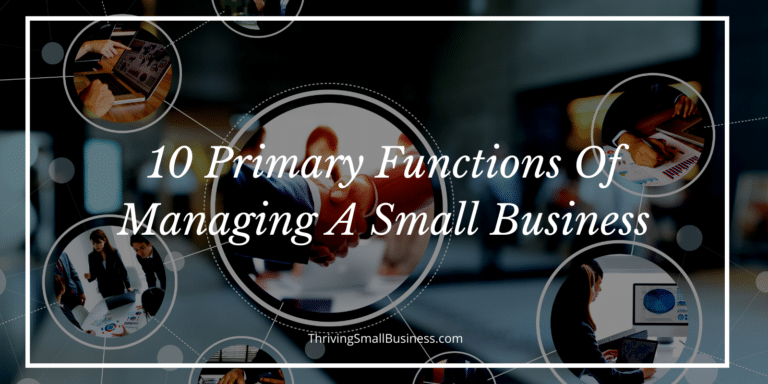6 Tips To Increase Traffic To Your Business Website
Estimated reading time: 6 minutes
If this pandemic has done anything, it has increased online sales.
This year, most small businesses realize the importance of a functioning website and ranking in the search engines.
Like it or not, Google is the largest search engine and carries the biggest stick when it comes to searching for traffic (at least for now).
Because of this, it’s essential to understand what Google is trying to accomplish so your business can line up with its criteria for ranking well.
I found a question that was posed to a Google representative. The question was, “How can a legitimate business compete online?”
To answer that question, it is essential to understand that Google’s number one priority is to create a good user experience for searching the web for information.
We can all relate to doing a search and finding information that did not answer our question.
Google is merely trying to make sure that the best content comes to the top of the list when we search for something.
6 Tips To Increase Traffic To Your Business Website
1. Don’t Create Friction
Customers who come to your website to make a purchase want one thing. A smooth process to complete the task they came for.
A recent report showed that 88% of customers who had a bad experience on a website will never return.
If you are selling something online, ensure all the links, pages, and checkout systems work. One bad link may cost your business!
Make sure your website has an easy way to make a sale.
For instance, if your checkout button takes customers to a bad page, the customer will abandon you and probably never return.
2. Subscribe To Online Directories
Online directories pull information about your business from whatever source they can find.
Be proactive and take the time to provide these directories with accurate information about your business.
Most online directories are free to set up a basic account. Some of the most common ones are:
Google Places
Like it or not, Google is the king of the internet, making it important to provide Google information that you would like to rank for in the search engines.
Take the time to set up a Google Places account to ensure that the information you want to be found is there for someone who might be searching for something your business has to offer.
Yelp
People use Yelp to search for everything in their neighborhood. From the local burger hangout to a specialized physician to the dry cleaners down the street – all will be found on Yelp!
It is a tool many people use to find a product or service that is close to home. You can set up an account for free and manage the information that is shared about your business.
There is a rating system on Yelp, so be sure to monitor the reviews and be proactive in addressing any issues that may come to your attention.
Yellow Pages
The big yellow book that we all grew up with has changed to a digital format.
Yellow Pages (YP) is a tool that consumers use to find local businesses.
Take the time to create an account with current information to ensure that people who may be looking for you see the accurate information that you want them to see!
Yahoo Small Business
Yahoo is another search engine that many people use, and Yahoo Small Business has a basic local listing directory that you can set up to show all the information you would like found when someone is searching.
Bing Places
Bing is a Microsoft product that is also used by many for searching for products and services.
Similar to all of the other directories, with Bing Places, you can set up an account and manage the information that people find when they search.
While subscribing to these online directories might seem like a time-consuming chore, the reality is once you set up a profile in one, you cut and paste the information in the others, making the process go much quicker than you might think.
3. Share Helpful Information
Google can only index information that is available on the web.
If you have some great information that people are looking for, get it written and post it on your website.
Create a blog and use it as a forum to share helpful information with your customers.

Create value by offering customers short articles that help them learn something or understand your product better.
Try to answer the questions that people have and provide a free information resource for your industry.
For example, if you are a real estate agent, share tips on maintaining your home, staging it for sale, or decorating ideas.
Anything that adds value to your customers will keep them coming back.
4. Create a User-Friendly Website
Take a look at your website and make sure it is something that adds value to your customers.
For example, do an audit of your site and see how easy it is to navigate and how user-friendly it is.
If your website is poorly designed, it won’t create a good user experience, making them less likely to stay engaged or return.
Invest the time and money into cyber security to make sure your site is not hacked.
Ask someone unfamiliar with your site to go there and provide you feedback as a customer would.
You may be surprised at how an objective third party might view your site. And helpful tips they may offer!
Website technology has evolved drastically in the last five years. If your website is 10 years old, it might be time for an upgrade.
There are many inexpensive ways to have a professional website.
For example, Wix is an affordable, low-skill platform that makes it easy to update your website.
If you are not happy with your current site, you should check them out!
5. Engage Your Customers
Loyal customers require relationships.
Find creative ways to engage with your customers.
Offer an incentive (give them something for free) for customers to join your mailing list.
Share discount or coupon information for them to use or offer products or services at a reduced rate.
Sponsor an event to provide information or services to your customers.
The goal is to create a customer relationship that you can build upon.
6. Get Social
Social is the new search and provides exposure outside of internet searches.
Use social platforms to share blog articles, discounts, or product promotions. Utilize a social sharing tool to automate the process.
There are many tools you can use to schedule social shares across all social platforms.
Find a tool that works for you and automate your social shares.
Why Is This Important?
Most people now do a Google search when looking for information, products, or services and rely on the Internet as a source of information.
Take the time to update your website, make sure every page is functioning, and offer helpful content and information for your key customers.
Ensure your organization offers some of the best information and solutions, and your traffic and rankings will naturally improve.
If you are looking for more in-depth help on improving your website’s ranking, you can check out a great book – 3 Months to No.1: The “No-Nonsense” SEO Playbook for Getting Your Website Found on Google.
Do you even know how well your website ranks in the search engines?






